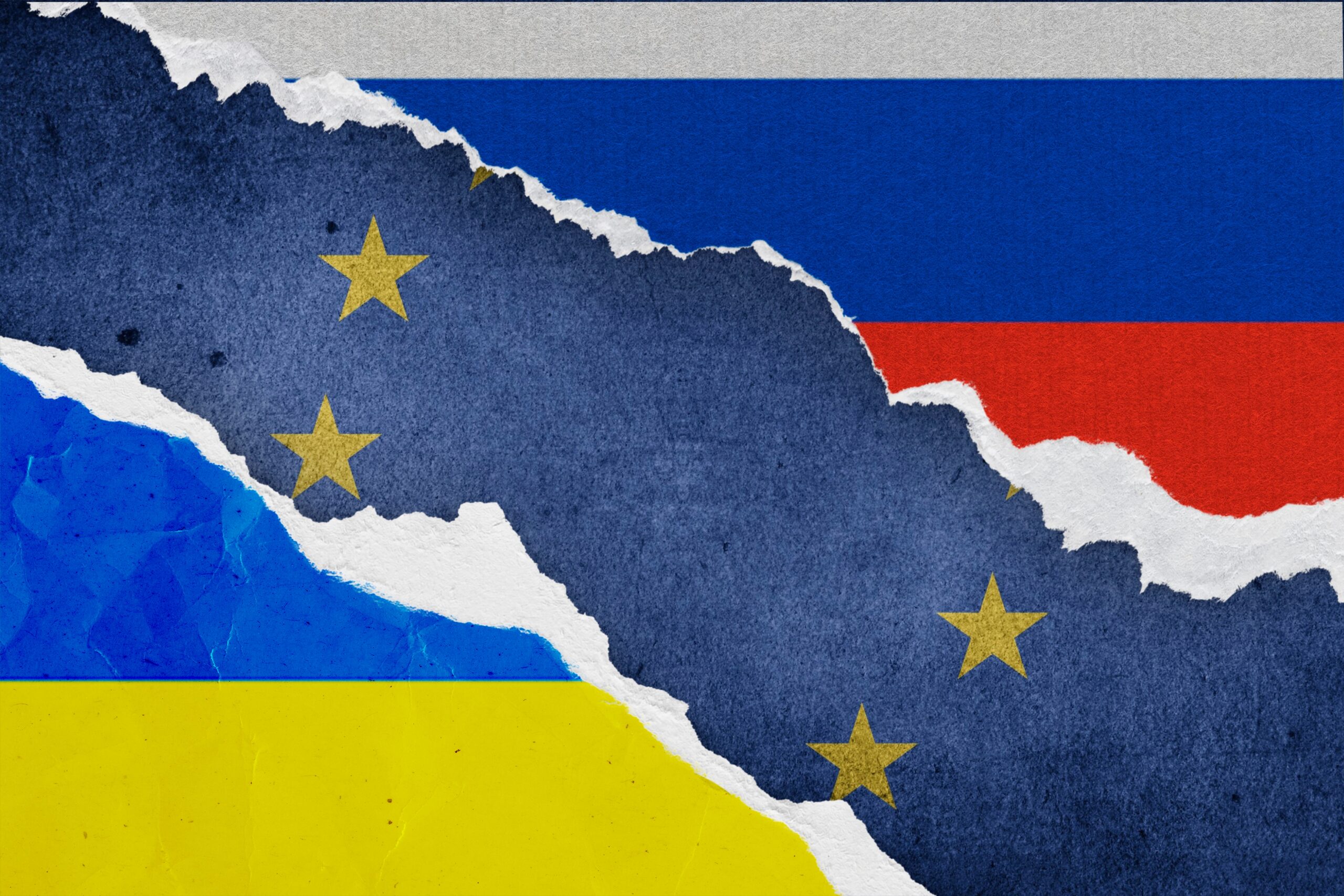Foreign Policy Brief #218 | Yelena Korshunov | October 23, 2025
During my trip across Europe a week ago, I spoke with people from different countries — ordinary men and women I met along the way. I asked each of them whether they feel safe in their country today and whether they expect a war.
Their answers echoed the broader mood across the continent. Many Europeans no longer feel safe because of Russia’s growing threats. According to a recent YouGov survey conducted in seven EU countries, “the closer a country lies to Russia, the more likely its people are to view the Kremlin as one of Europe’s main threats.” Russian aggression was named as one of Europe’s greatest dangers by 62 percent of respondents in Denmark, 57 percent in Lithuania, and 51 percent in Poland. In Germany, 36 percent considered Russia a top threat, followed by 31 percent in France, 22 percent in Spain, and 20 percent in Italy. Interestingly, in addition to fears of Moscow’s aggression, 19 percent of Spaniards and 17 percent of Italians said they also feel unsafe because of Washington’s actions.
Vaida lives in Vilnius, the capital of Lithuania. She is a university professor. “There’s a lot of talk here about Russia preparing to attack us. We’re afraid that the Russians might suddenly invade Lithuania just as they invaded Ukraine,” Vaida says. “We’re digging anti-tank trenches along the border and getting ready to repel an attack. I’m very afraid that my sons and my husband will have to go to war to defend us from the Russians.”
Carl runs a small restaurant in Dresden, a beautiful city in Germany. “I’m disturbed by Trump’s attitude toward Europe and his strange friendship with Putin. There is a lot of talk that Trump was recruited by the KGB years ago and has been their long-term project. How else can you explain the way he dances to Putin’s tune, as if following his orders? Trump is trying to weaken NATO — and that’s exactly what Moscow needs to attack European countries.”
Gerhard held a senior position in a large trading company for many years. Now he’s retired, living in Austria. He believes that NATO is capable of stopping a Russian attack on European countries, but America’s stance toward the alliance plays into Putin’s hands. “How could you elect Trump as president?” he’s wondering, looking at me inquisitively. “Half the country considered him a worthy candidate,” I replied. “I apologize for my country — and for our president.”
Adam drives us from the airport to Prague, the capital of the Czech Republic — a former member of the socialist bloc. He says he was a child when, in 1968, Soviet tanks rolled into Prague, crushing in blood the attempt of liberalization of the totalitarian Soviet regime. Adam tells us about this in very broken English, but we understand him. We also know about the “Prague Spring” — the period of liberalization in Czechoslovakia from December 10, 1967, to August 21, 1968, associated with the election of Alexander Dubček as First Secretary of the Communist Party and his reforms aimed at expanding citizens’ rights and freedoms and decentralizing power.
On the plane to Prague, my husband and I wondered which language we should speak there so as not to irritate the locals. Given Trump’s attitude toward escalating Russian threats toward Europe — “it’s none of my business” — English didn’t seem like the best option. The older generation of Czechs learned Russian in school, but after Russian tanks on Prague streets in 1968, Russian is not a beloved language in the Czech Republic. As it turned out, however, speaking English was perfectly acceptable — at least in tourist areas.
Kristina works at the reception desk of a cozy hotel in Old Prague. She’s a student and works part-time there on weekends. “I don’t think about the possibility of war here. None of us talk about it. We just live our lives. I hang out with friends, but we don’t discuss politics. There are many Ukrainian refugees in Prague. A girl from Ukraine studies with me. We don’t talk about what’s happening there,” Kristina says.
I understand her. It’s hard to imagine that incredibly beautiful, vibrant, tourist-filled Prague could ever come under shelling. May it always stay that way — may the sky over the Czech Republic and the entire Europe remain peaceful. But Ukrainian cities — Kyiv, Odesa, and Lviv — were once just as full of tourists and bright lights before they, too, came under relentless Russian bombardment, destroying lives and leaving behind ruins and tragedy.
Engagement Resources
- The closer to Russia the greater the fear, opinion poll finds, https://www.politico.eu/article/russia-opinion-poll-closer-border-fear-yougov-eu-countries/
- What Europeans think of Trump’s approach to Ukraine (and what they might do next), https://www.atlanticcouncil.org/blogs/new-atlanticist/experts-react/what-europeans-think-of-trumps-approach-to-ukraine-and-what-they-might-do-next/
- Senior German General Says Europe Must Do All It Can to Help Ukraine, https://www.nytimes.com/2025/10/20/world/europe/ukraine-russia-war-europe.html

